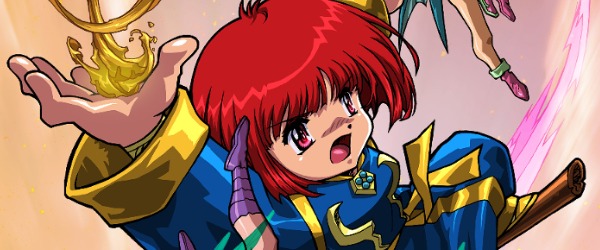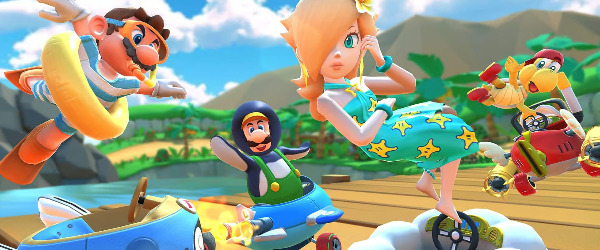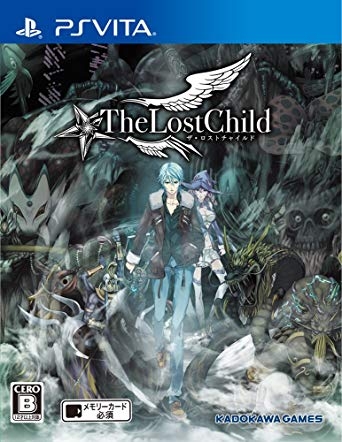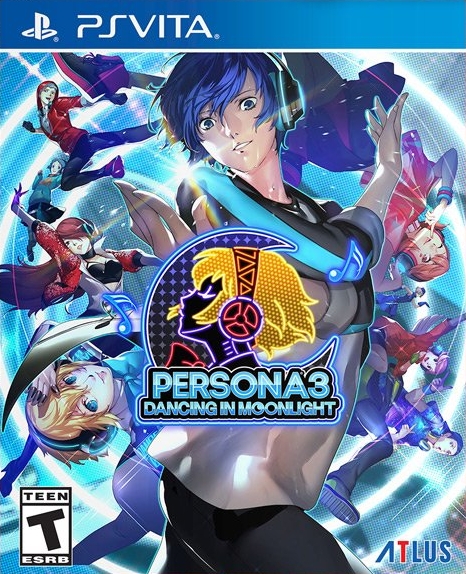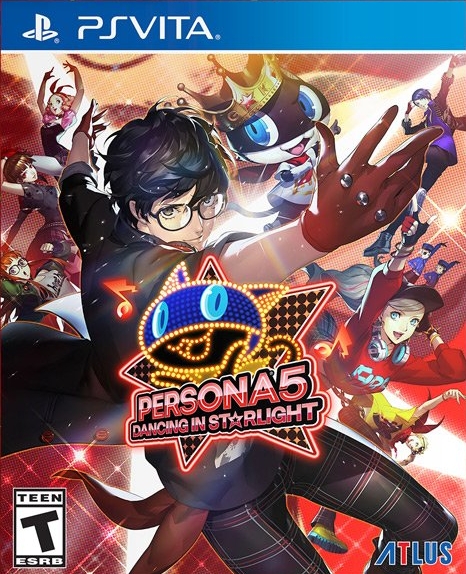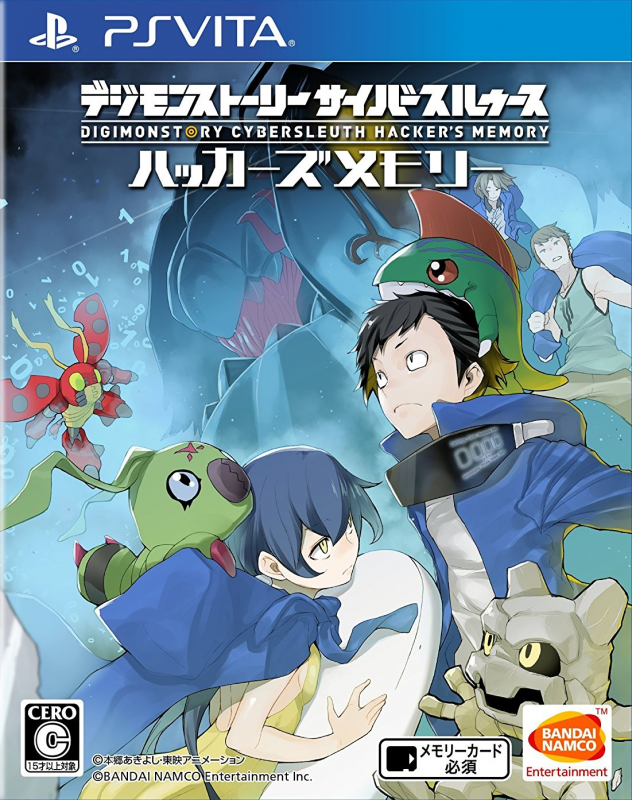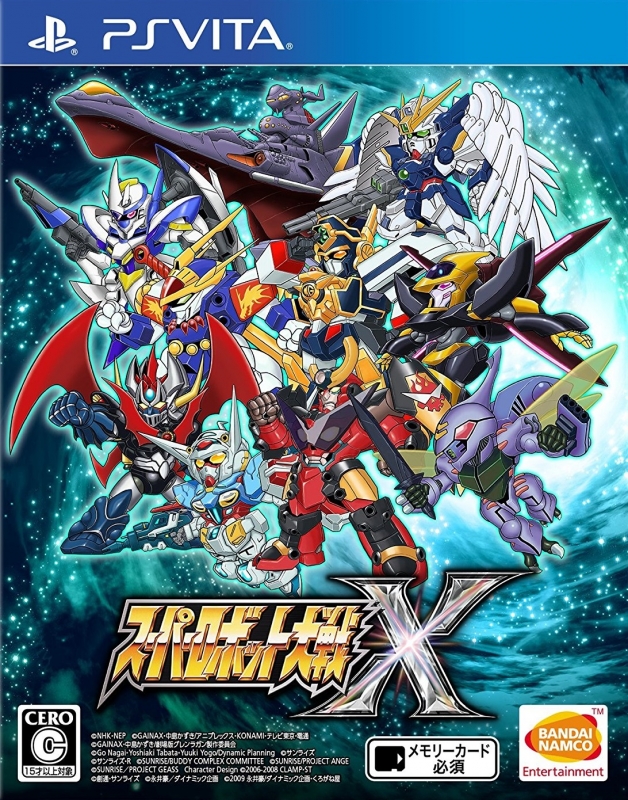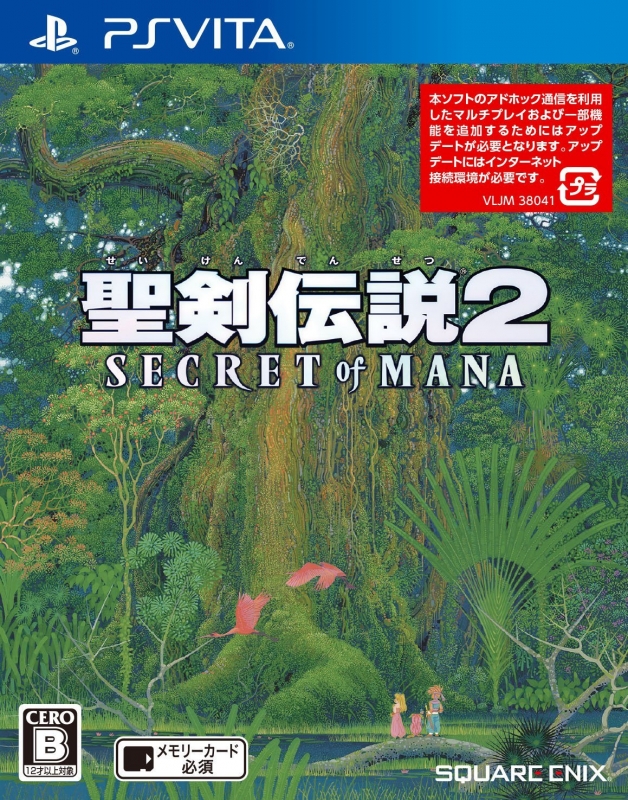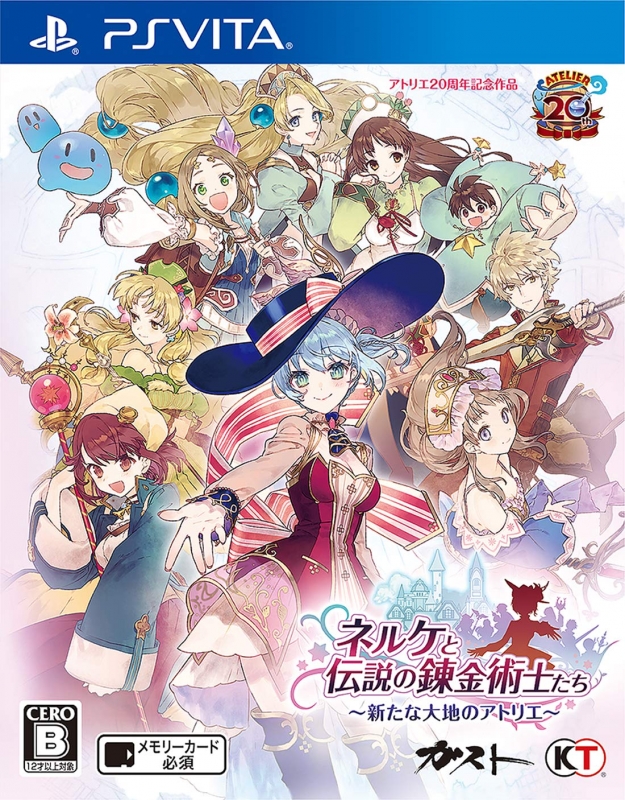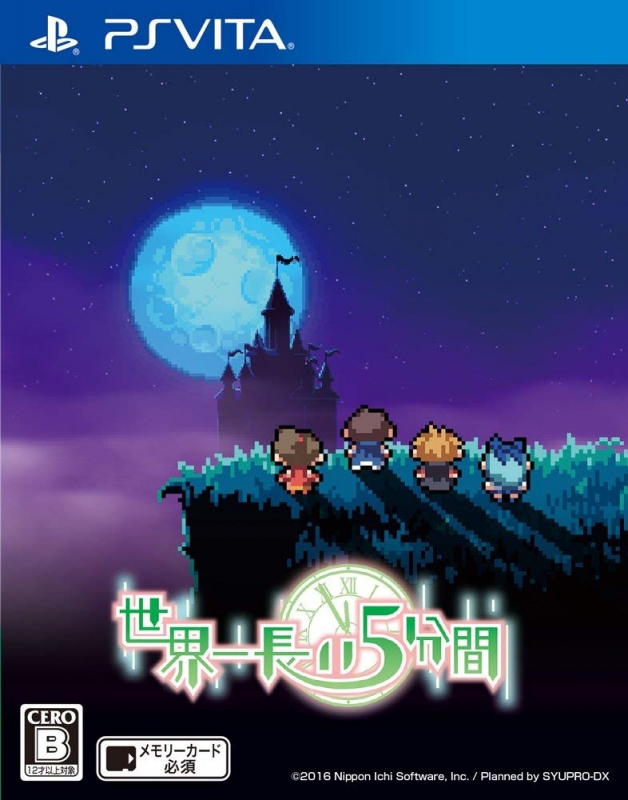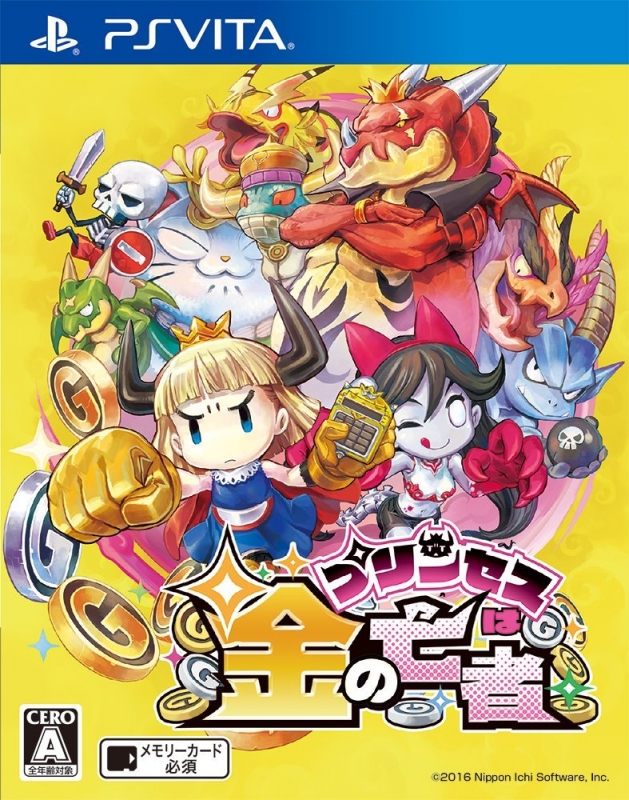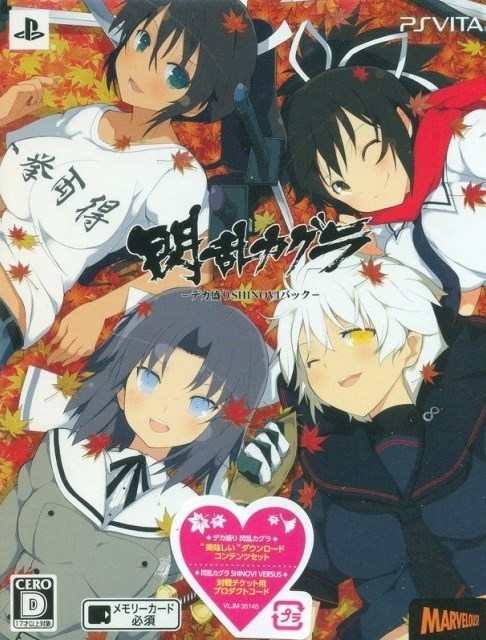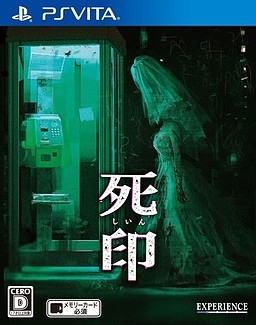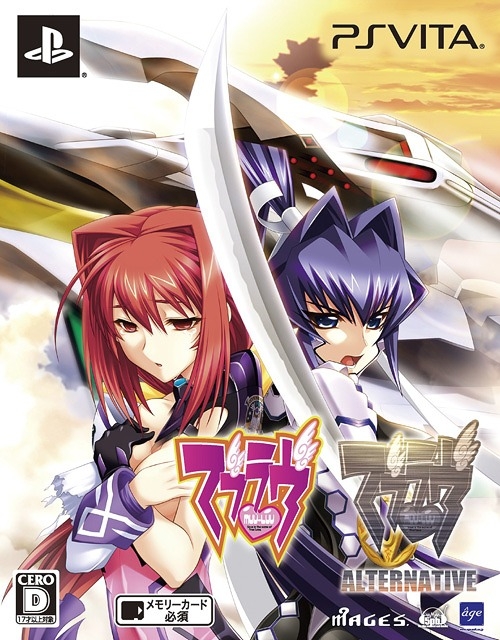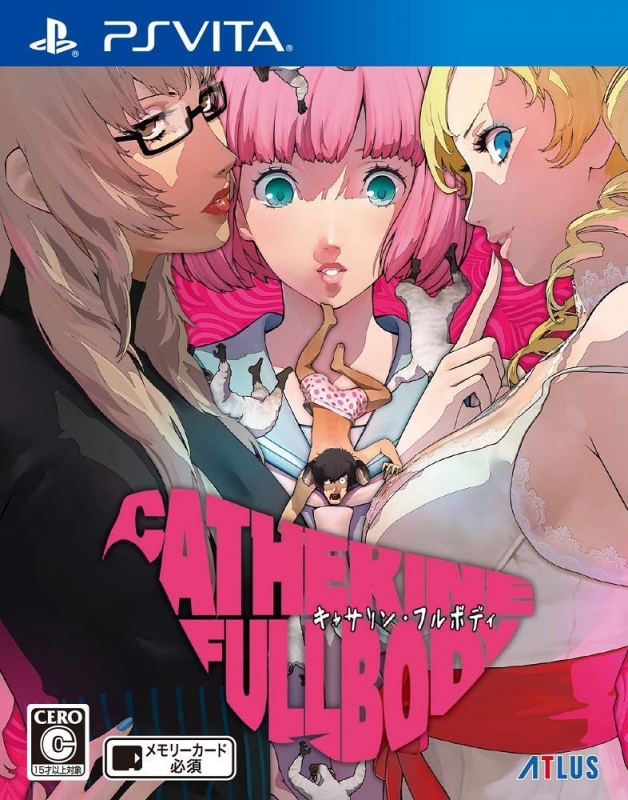
The State of Vita in 2018 and Thoughts on its Future in 2019 - Article
by Adam Cartwright , posted on 08 January 2019 / 4,347 ViewsWell, it finally happened – 2018 is the year that the wind finally came out of Vita’s sails in its journey beyond my own expectations (I was certain it was going to be discontinued within its first couple of years!). Between the announcement of the discontinuation of physical carts starting next year, the reveal that hardware production would be stopping worldwide in 2019, and the confirmation that PS+ games would no longer be offered for Vita from March, it’s been something of a disappointing year thanks to a large chunk of bad news, pretty much all of it coming from Sony itself.
That’s meant that its future (and the future of this set of articles) has been left somewhat in limbo, with the likelihood being that things will wind down significantly in the coming year as the console reaches the end of its life. We’d already seen signs of its impending demise in recent years, with things like consoles disappearing from store shelves in Europe, publishers skipping localizations of the Vita ports of their titles, and Nintendo’s Switch coming out of the gates all guns blazing to take the crown in the high-end handheld market.
Still, in spite of all the doom and gloom, it certainly doesn’t mean there isn’t plenty to look at with Vita. Thanks to a spree of fun titles releasing throughout the year in 2018 and a few great-looking games to still look forward to in 2019 too, Vita may be reaching its end, but it’s certainly not going down quietly.
Highlights of 2018 – Physical Release Overdrive!

One of the more bizarre trends during the Vita’s admittedly unconventional life is the fact that the amount of English physical releases seems to have increased tenfold as the console reaches the end of production (rather than decrease, as is common for pretty much every other machine out there). It's just that these titles are no longer available from store shelves and instead have to be bought directly from boutique online distributors. The main contributor to this trend is Limited Run Games, the company that arguably started the limited indie revolution and put out more than 30 titles between January and December, with key releases including Bastion, Oddworld: Munch’s Oddysee HD, Phantom Breaker, and Senran Kagura: Bon Appetit.
Other publishers have really stepped up their game in 2018 too. For example, eastasiasoft (which did its first ever physical release with LRG) put out a tonne of stuff exclusively through the retailer Play-Asia, including classics like Reverie, Severed, and Sir Eatsalot. That was on top of the company's ongoing partnership with Ratalaika Games, with titles such as Devious Dungeon). Meanwhile Signature Edition Games also released The Count Lucanor and The Long Reach.

Yet just as prominent last year were newcomers to the market, in spite of the news that western physical cart production was going to cease (in fact, it seems some of these popped up to ‘get a last few orders in’ before the window closed entirely). These included Red Art Games, which has announced five titles so far (The Bard’s Tale, Bit Dungeon+, Demetrios, Ice Cream Surfer, and Riddled Corpses Ex) and Strictly Limited Games, which somehow managed to land Sayonara Umihara Kawase+, as well as two Japanese indies in Bunny Must Die and Gundemoniums.
Some companies even took things into their own hands. Arcade Distillery, developer of Mecho Wars and Plague Road revealed that it would be running a pre-order campaign through Indiegogo for its next two titles - Mecho Wars: Desert Ashes and War Theatre - which would be among the final western physical titles on the handheld. It seems that the market for physical indies is continuing to go from strength to strength, despite Sony cutting it off at the source.
Highlights of 2018 – Vita’s True Localization Friends Are Still Here

Inevitably as Vita’s hardware sales have dwindled in the west, publishers have pulled support, with companies like Koei-Tecmo skipping releases of things like Atelier Lydie & Suelle and Warriors All-Stars, while others like Spike-Chunsoft never even got started by ignoring Vita for titles such as Steins;Gate Elite and Zanki Zero. That’s just made it all the more special that other companies have remained on-board, ensuring that the Vita’s 2018 was filled with new and awesome stuff to play.
The most notable of these for me is Aksys Games, a company which has been there since the console’s western launch in February 2012 and seemingly never lost love for it, bringing over a host of titles throughout 2018. Among these were the ‘Summer of Mystery’ otome lineup, which included 7’Scarlet, Psychedelica of the Black Butterfly, and Psychedelica of the Ashen Hawk, alongside the well-received horror visual novel Death Mark and beloved fighting game Under Night In-birth Exe:Late[st]. PQube also delivered the goods with Muv-Luv and Punchline, although seeing Omega Labyrinth Z get completely banned followed by the company skipping Our World is Ended was a one-two punch of disappointment.

Other companies have been more hit and miss. Take NIS America, for example, which continued to release a few final holdovers, such as Penny Punching Princess, The Longest Five Minutes, and The Lost Child (all of which are, by some miracle, getting physical versions in 2019), but skipped other things like Coven and the Labyrinth of Refrain, Metal Max Xeno, and The Princess Guide. XSEED Games also managed to sneak London Detective Mysteria in before the year was up, but has skipped other titles such as Uppers.
We also saw the last remnants of support from bigger companies. Atlus gave us Persona 3: Dancing in Moonlight and Persona 5: Dancing in Starlight, Bandai-Namco brought Digimon Story: Cyber Sleuth Hacker’s Memory and Super Robot Wars X to Asia (although unfortunately skipped over Gintama Rumble), and Square-Enix released Secret of Mana in February. I wouldn’t expect to see anything similar in 2019, aside from possibly Romancing Saga 3 if the stars align, so it was nice to enjoy a final blowout this year.
Highlights of 2018 – A Few Indie Surprises

The indie onslaught which has been a key part of Vita’s life since launch definitely contracted in 2018, with many developers changing their plans to focus on more successful platforms, including the new-kid-on-the-block Nintendo Switch. That doesn’t mean there haven’t been some great titles throughout the year though; possibly the final year where there will be such an impressive selection of new releases.
By far the most high-profile is Stardew Valley, the laid-back farming sim that took Steam by storm. Although the Vita port didn’t include the recent multiplayer content, it was otherwise a solid way to play the title on the go. Other notable releases included Cosmic Star Heroine, the throwback turn-based RPG from Zeboyd Games; Iconoclasts, a brilliant action-platformer from genre heavyweight Konjak; and Reverie, a charming New Zealand-based Zelda-like.

Some games which were announced years ago suddenly reappeared out of the blue too, including Chasm, Roundabout, and 2064: Read Only Memories (which was somehow cancelled then revived!), while brand new titles came out of the woodwork to continue to bring variety to the handheld’s library, such as Deadbolt, Fast Striker, and Neurovoider. The Vita also got some old classics, such as King of Fighters ’97: Global Match and Night Trap: 25th Anniversary Edition, as well as a whole host of ports from Ratalaika Games.
I couldn’t complete this section without mentioning some of the disappointing cancellations we saw last year, the most significant by far being Bloodstained: Ritual of the Night, the Kickstarted Castlevania spiritual successor (although we did at least get the retro prequel, Bloodstained: Curse of the Moon, as a consolation prize). Another Kickstarter which failed to follow through on its promises was Crossing Souls, despite picking up Devolver Digital as a publisher, with the developer denying that it ever promised a Vita port in its original campaign.
Thoughts on 2019 – Japan Says Goodbye

Vita’s strongest market has always been Japan, where handhelds continue to be the desired way to play and games aren’t necessarily made with AAA budgets that require high-end hardware. This has ensured that the console has received significant support throughout its life through a steady stream of releases, but it seems likely that 2019 will be the final year that it sees significant output, as developers finally transition over to PS4 & Switch.
Key franchises which helped define the Vita’s life on the market have now moved on. Take for example Atelier, which saw a veritable mountain of releases on Sony’s handheld, but the latest entry (and fourth in the Arland sub-series, entitled Atelier Lulua) is targeting PS4 & Switch instead (although amusingly, a final Atelier game will be hitting Vita in 2019 thanks to Atelier Nelke being delayed). This is similar to what happened to Digimon: Survive and Super Robot Wars T; the latest entries in those franchises flourished on Vita but both franchises have now moved on to other platforms, despite them seeming possible from a tech point of view.

That doesn’t mean there aren’t still things to look forward to. Japanese Vita games are still being developed, including a few potentially import-friendly titles linked to anime (DanMachi and KonoSuba), a remaster of Romancing Saga 3, as well as a brand new Pro Yakyuu Spirits game (the first since 2015). A handful more might be announced in the early months of this year too, but I wouldn’t expect much to tide you over going forward, as key Japanese publishers like Bandai-Namco, Nihon Falcom, and SEGA have seemingly moved on.
The big exception to this is Catherine: Full Body, the final Vita release from Atlus and an expanded remake of its well-received puzzle visual novel from 2011. It’ll be hitting Vita in Japan in February and although signs aren’t promising that it’ll be seeing an English handheld version, it still points to being a potentially stonkingly good title to look forward to next year via the import market.
Thoughts on 2019 – The Last Physical Push

As detailed above, the end of production of physical Vita carts was announced in 2018, but the cut-off date is March 2019, meaning there’s likely to be a big final push from the companies that are still in the market. We already know Limited Run Games have a tonne of titles coming (I believe around 25+), some of which are already announced like Iconoclasts, Spelunky, and YIIK, while others are potential surprises (I’d bet money on Deadbolt and more Kemco games being among them). There’s also its marquee localization The House in Fata Morgana, which I’m expecting to get a pretty big print run.
Other western publishers have stuff lined up too. Strictly Limited Games is releasing Hardcore, its revival of the long-cancelled DICE-developed SEGA Mega Drive classic, while newcomer Red Art Games has promised one last announcement coming soon (oddly making it one of the biggest players in the Vita market, despite its very late entry date). I wouldn’t expect others such as Signature Edition Games to have anything left, although there’s a chance Special Reserve Games might finally release that Vita print it's been hinting at since 2017.

It’s also worth noting that although physical cart production is ending worldwide, Asian companies will still be able to order new print runs from a (presumably) small pool of excess carts that were made. This means eastasiasoft, a publisher based in Hong Kong which has made a name for itself releasing indie games in partnership with Play-Asia, will become pretty much the only place for devs to go if they want to put out a hard copy of their titles. We already know eastasiasoft had “plenty” coming in 2019, having just opened pre-orders for I am the Hero and Super Destronaut DX (both of which have pretty much sold out as of the date of publication of this article).
Japanese physical releases will continue too, and although I’m not expecting anything noteworthy there (see above section), there’s a possibility of situations like Darkest Dungeon where a cart will include English subtitles, making them an attractive pickup for importers such as myself.
Thoughts on 2019 – Expect More Cancellations, but a Handful of Surprises Too

As the brilliant Vita YouTuber 2 Old For Gaming said in his 2018 review video, the word of the year for Vita in 2018 seemed to be “cancelled”. Between PS+, the hardware, and western carts, there were also a large amount of games cancelled, including the gorgeous-looking 13 Sentinels from Vanillaware and the highly anticipated Kickstarted indie game Bloodstained. That’s only counting games that were “officially” cancelled too – it’s highly likely that there’s more going on behind the scenes with developers silently dropping Vita from their plans but not announcing it (I’ve received hints from a couple of devs regarding this already).
I would only expect more of this in 2019, both in terms of official cancellations and silently dropping plans too. For example, the tough-as-nails platformer Rain World was announced for Vita way back in 2014, but with the PS4, PC, and now even a surprise Nintendo Switch port out of the way, complete radio silence from the devs makes it highly likely that this one is gone and we’ll never hear about it again. Conversely, Sekai Project keeps dangling the carrot of Vita ports, including for Fault Milestone, Narcissu, and World End Economica, but I expect all of them to be formally announced as not coming early this year.

While I think there’s going to be plenty more bad news on the way next year, I still don’t think Vita will be completely done. Indeed, I expect a handful of nice surprises along the way. Take December 2018, for example, where Atari Flashback Classics appeared out of the blue because Code Mystics decided to port it in its spare time as a “parting gift” to the community. We also had reveals of things like Scintillatron 4096 that I had no idea were in the works for Vita, showing how things can keep ticking over behind the scenes.
Obviously, it’s difficult to predict what surprises we’ll get – possibly a new SNK port (although this seems unlikely given Code Mystics’ “parting gift” comment) or a random anime tie-in. One thing you can bet on right now is Ratalaika Games, though, which has indicated on more than one occasion that it still has plenty lined up for Vita in 2019, a lot of which has yet to be announced!
Conclusion
I can’t finish my yearly article on quite as positive a note as I did last year, as although Vita still has a lot to look forward to in 2019, it very much feels like this is the final wave and that support is going to stop at some point during the year. Still, that’s nothing to be too sad about – the handheld has had a run far beyond what I’m sure many people expected, lasting more than 7 years in the market despite never really taking off.
My advice for 2019 is that if you've ever enjoyed the handheld, just to make sure to buy, play, and enjoy anything you’re interested in – the devs working on Vita at this point aren’t really doing so out of commercial drive, but more because of love for the platform. It’s lovely as a fan to see companies continue to support the handheld well into its twilight years, meaning that I’ve personally got a lot to play for the next 12 months.
More Articles
Thanks for another great article! Seems like 2019 could also be the final year of the 3DS.
Yea... i feel like Nintendo tried everything at this point with this console. The 2DS has been dirt cheap with a game for like 2 years and they don't seem to be making games for it nor is almost every third party. It was about time tbh, now that the switch is well positioned in the market, they don't have to keep the 3DS line just in case.
Glad you enjoyed reading it. Yeah, Nintendo have put a lot of effort into keeping the 3DS ticking over the past couple of years but it seems likely it'll see its last year in 2019 too.
At least 3DS doesn't look like it's going to be discontinued (hardware-wise) until 2020 probably, as Nintendo haven't announced anything in regard yet.
Yeah we'll see if there are any 3DS annoucements at the next Direct.
I love these Vita articles, but can we talk about how the Vita was arguably a bigger sales failure than the Wii U. Vita was on the market for 7 years with no successor and only managed to beat the Wii U by 3 million units. Wii U on the other hand was completely dead by 2016, with the Switch successor on the way. That's about four years of sales vs seven years of sales. I don't know though, maybe I'm wrong. Maybe the Vita got the 90% of its sales in its first four years.
The Vita actually only sold just over 2 million more units so they're pretty damn close. Overall, I'd say they're roughly equal sales failures.
Sure, we can talk about it.
The counter-point to what you're saying would be - there's a reason Vita was on the market for 7 years and it's not because of no successor (otherwise Dreamcast would have lasted longer than 2 years), it's because it found itself a mild success in a handful of markets. Vita did "alright" in Japan & Asia, whereas Wii U didn't really do well in any market. So Wii U got discontinued worldwide, while Vita got kept on in Asia (whereas it was discontinued in the west in 2016).
The other point is that Vita was part of a fairly successful ecosystem for third-party publishers in Japan (where the Vita ports of games would often outsell their PS3 & PS4 counterparts) while Wii U didn't really have any kind of successful software ecosystem. Third parties were absent for a reason and while Nintendo's own games sold well enough, Switch has shown that it was ultimately holding the potential of a lot of games back.
So it's not really a case of "Wii U sold more in less time" for me (it's also worth noting that the VGC figures overtrack it by about 500k, as its final shipment figure was 13.56m), but rather that it failed to find success anywhere in the world whereas Vita at least managed to be a minor success in a couple of markets. If we used the above logic, Dreamcast would be less of a failure than Gamecube because DC sold ~ 9m in 2 years while GC sold ~ 21m in 6 years :P
Either way, they're both commercial failures. I think you could argue either way that one was bigger than the other.
Oh I didn't realize VGC's numbers were so off for the Wii U. If Vita's numbers are accurate, it actually sold about 2.5 million more units.









